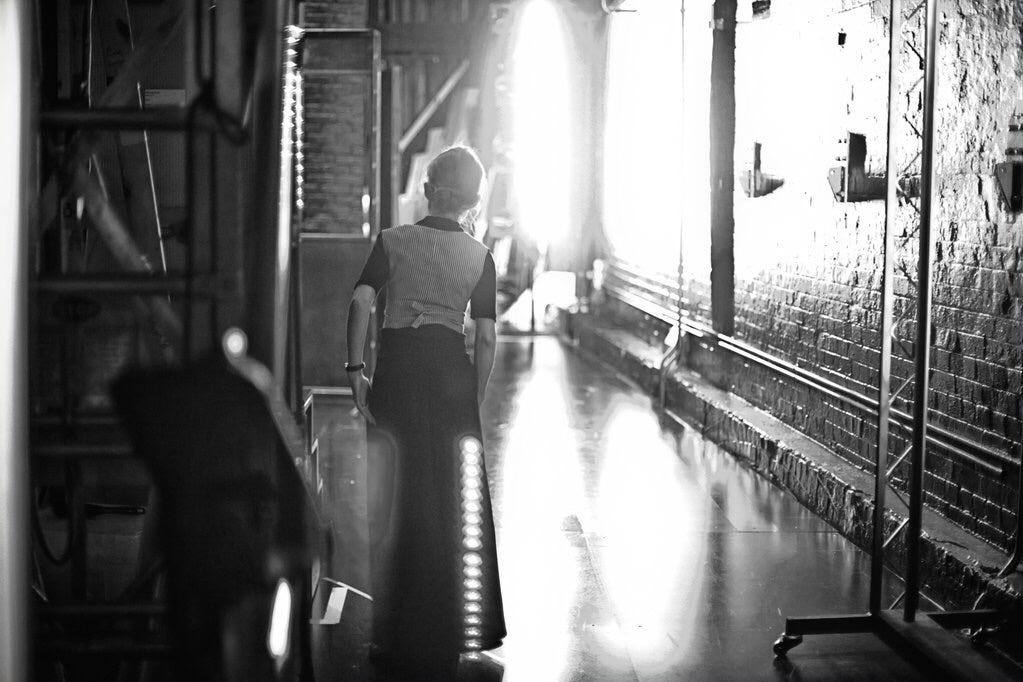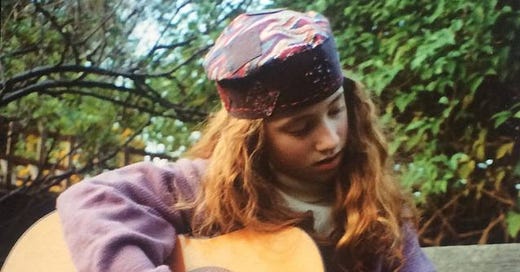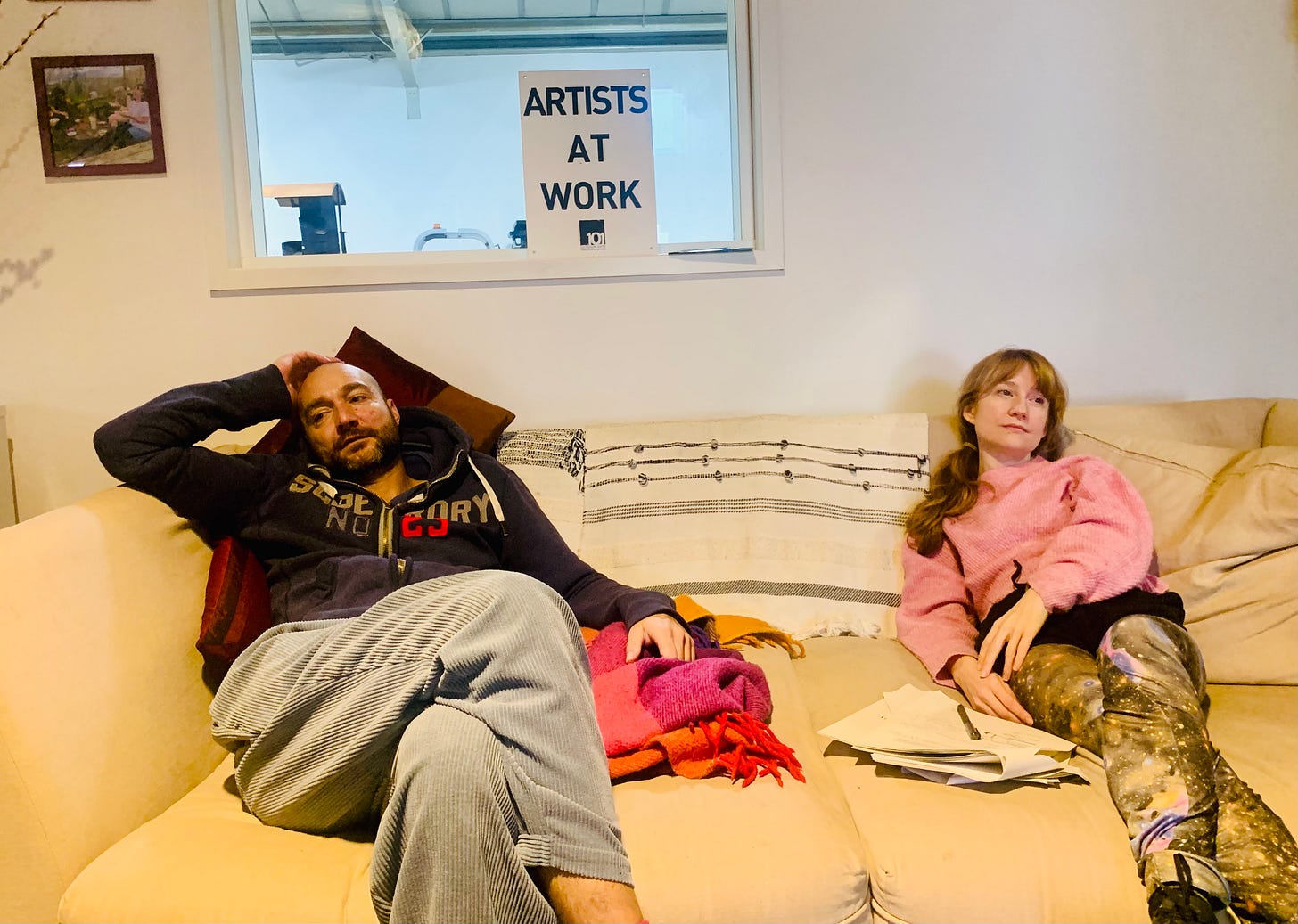This past week I’ve been co-writing a song for a competition. I met up with a friend who has a regular 9 to 5 job. He asked me how I was spending my evening and I explained “I’m writing a song for a competition so I have to go home and record it”. Recording a song is a process which, for me, involves balancing blankets over half a shelving unit to dampen sound, fighting with Garageband and getting frustrated to the point of tears when my laptop conks out mid-record for no reason. Writing the song itself (there are three of us collaborating) is a knotty (albeit rewarding) process.
But to an outsider it sounds quaint: “I’m off home to write a song, then I’ll probably rearrange some daffodils in a jar, make a daisy chain and think about kittens!”
Sometimes I feel shame when describing what I’m up to, because the task is unpaid and therefore runs the risk of sounding trivial. But for many of us (especially comedy writers/makers) the unpaid things we do are a big part of keeping the wheels of our creative work, and in turn our paid work, turning. Competitions can be time consuming, but they can also lead to things. Sometimes winning something (or being placed) can help to open the door to future opportunities. Occasionally (though I’ve yet to experience this), winning a competition can result in being awarded a small amount of money to contribute to the work one is making. For me the best thing about competitions is reacquainting oneself with that old familiar friend: the deadline. Having to finish something by a certain date, along with writing the obligatory Treatment/Synopsis, forces one to clarify the idea and lay it out in simple terms for the casual reader. This is useful. Many’s the time that entering a competition has crystallised an idea my writing partner and I have been working on. Often, after entering some scheme or other, we’ll feel pleased and grateful to have become excited about the world and the characters again, despite not winning anything.
Nevertheless the amount of labour many writer/performers do for no financial reward is challenging. To be clear I’m not talking about free work for other people’s projects, I’m talking about the unpaid work many of us do as a necessary part of maintaining our own projects and therefore our own careers.
Here are some examples of unpaid work that needs to be done on a regular basis; writing pitch decks, treatments, loglines, series outlines, pilot episodes, character descriptions, songs, bios, press releases, chasing up industry people, filling in funding applications, making e-flyers for comedy nights using technology you don’t fully understand, booking acts, promoting gigs, rehearsing solo work, trying out material at free nights, writing scripts, making videos, doing press/promo for other projects you’re in….the list goes on.
Someone once asked me if I got paid for having my sketches featured in a popular online magazine. Hahahahahaha. No. Was my reply.
I, like nearly every hard working creative I am proud to know, do all of the above as well as paid work eg; leading improv workshops, acting work, performing touring shows, teaching in drama schools, doing corporates etc. None of us are slacking, or sitting around in artist communes daydreaming about creativity.
Nevertheless when talking to people with permanent jobs I sometimes struggle to talk about these tasks as being a key part of my professional work.
Collins dictionary defines professional as “relating to a person's work, especially work that requires special training.” Special training (whether you learn at drama school, on an online course, through watching hundreds of sitcoms, or through performing in front of thousands of audience members over many, many years) is absolutely required when it comes to writing a sitcom/a musical/a solo show. The unpaid work we’re all doing is valid and professional and skilled.

I think that’s why I keep coming back to the idea of trying to think of myself as an artist, pretentious though that may sound. If we comedians/writers are artists, then the work we’re doing is something we’re inherently driven to do. It just so happens that we live in a country which doesn’t value the arts in the way that, say France, does with its régime des salariés intermittents du spectacle - a brilliant scheme for jobbing actors and performing artists. You should’ve seen my face when my French friend told me that her government enables her to create, during so called “rest periods”. Oh mon Dieu! The UK doesn’t even value comedy/improv as an art-form in the way America does. For all its faults (currently being addressed in the Writer’s Strikes over there) at least within the entertainment industry in the US there’s a well-trodden path from being an experienced improviser, to getting auditions for sitcoms/getting in writer’s rooms. They take improv seriously over there. A dreamy thought.
Living under a government that doesn’t value the arts shouldn’t mean that we feel ashamed about having to juggle a million jobs alongside doing a multitude of unpaid tasks to further our own creative projects though. Imagine if production companies felt ashamed on the occasions that they don’t pay writers for development work. Or if tv shows felt ashamed when they don’t pay a fee for interviews.
We are artists, trying our best to make art without funding. It is work. It is as valid as Cyber….and way more fun.






In 2017 I asked Geoff Downes on Twitter what eh was compensated for 'Video killed the radio star' by Spotify which has 298 million plays. His response was pennies.
All of this is very true... (sadly!)